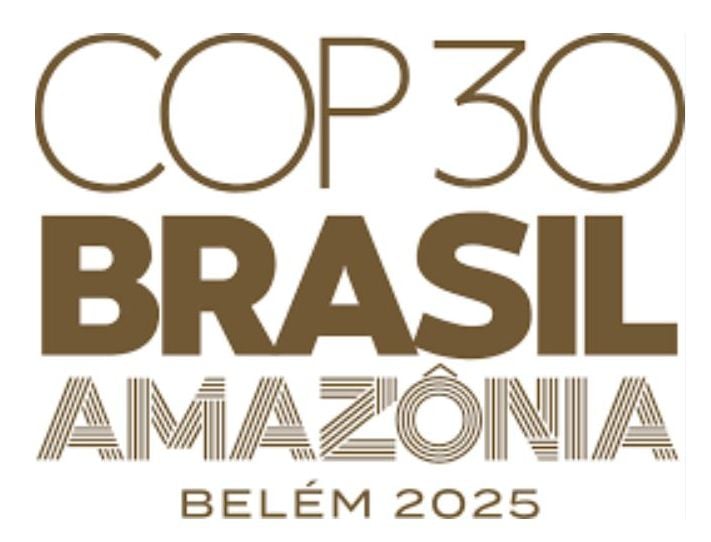We are not drowning, we are fighting.” This rallying cry echoed through COP27 and continues to inspire climate activists across Africa. It is a declaration of resilience and determination, but it also serves as a stark reminder: while the continent is battered by the relentless impacts of climate change, it has yet to fully seize the power to influence the global decisions that shape its fate. As the world prepares for COP30 in Brazil later this year, the question remains: will Africa finally show up as a confident leader, or once again be relegated to the sidelines of global climate negotiations?
Africa contributes less than 4% of global greenhouse gas emissions, yet it bears a disproportionate share of the climate crisis’s burden. Communities across the continent are grappling with increasingly severe droughts, devastating floods, unpredictable rainfall patterns, and rising temperatures. From the Horn of Africa’s prolonged drought that threatens food security to the catastrophic flooding in West and Central Africa displacing millions, climate impacts here are not distant future scenarios but daily realities. These devastating consequences have profound social and economic implications that threaten decades of development gains.
Yet, the latest reports from the UNFCCC reveal that African nations receive only a tiny fraction of the global climate finance urgently needed to adapt, mitigate, and build resilience. The African Development Bank’s recent analysis estimates that Africa requires more than $300 billion every year to meet its climate adaptation and mitigation targets by 2030, a figure that dwarfs the current levels of funding disbursed. However, much of the available finance is funneled through complex, donor-driven mechanisms, laden with bureaucratic hurdles that often keep these funds out of reach for the very communities that need them most.
Yet, despite this heavy burden, the latest reports from the United Nations Framework Convention on Climate Change (UNFCCC) reveal that African nations
This systemic funding gap perpetuates a vicious cycle. African countries frequently attend climate summits with limited negotiating power, often fractured by divergent national interests and regional dynamics. The outcomes of these summits, while sometimes applauded as progress, rarely translate into tangible, well-resourced action on the ground. The operationalization of the Loss and Damage Fund at COP28 was indeed a milestone — a recognition that the climate crisis has inflicted harm that cannot simply be adapted to or mitigated. But lingering questions remain about how equitably affected countries will access these funds, and whether the mechanisms in place will deliver real justice for vulnerable communities. For Africa, this can no longer be an exercise in symbolic victories or hollow promises. COP30 must be the moment when Africa decisively claims real agency and reshapes the narrative around climate justice.
To achieve this, three critical shifts must occur. African negotiators must demand equitable and direct access to climate finance. The latest Climate Policy Initiative report highlights that only about 15% of climate finance in Africa originates from domestic sources, illustrating a deep reliance on external donors. Many current financing models favor large-scale international projects, with small-scale, community-led initiatives struggling to secure support. To truly empower the continent’s response, funding must be streamlined, reducing red tape and bureaucratic barriers and directed to grassroots organizations, local governments, and youth-led innovation hubs. These are the actors most capable of implementing adaptive and
Africa must present a united front at COP30 to amplify its bargaining power and political influence. The continent’s negotiating strength has historically been undermined by fragmentation, as regional blocs such as ECOWAS, SADC, and the East African Community pursue separate agendas that dilute a cohesive message. The African Group of Negotiators (AGN), in collaboration with the African Union, must consolidate these voices into a coherent and uncompromising agenda centered on justice, sovereignty, and sustainable development. A unified demand for increased reparations for loss and damage, accelerated fossil fuel phase-outs that include support for just transitions, and equitable technology transfer grounded in respect for Africa’s developmental needs could significantly shift the global negotiating landscape. This collective strategy will demonstrate Africa’s resolve not to accept piecemeal concessions but to seek transformative change that aligns with the continent’s aspirations.
The continent must reclaim and champion homegrown climate solutions that highlight Africa’s role as a source of innovation and resilience. Far from being merely victims, African communities are designing and implementing pioneering responses to climate challenges. From solar energy projects powering remote villages in Kenya, such as the successful scaling of mini-grid solar systems improving energy access and livelihoods, to community-led reforestation efforts in Ghana restoring degraded lands and increasing biodiversity, these examples showcase the continent’s capacity for sustainable development rooted in indigenous knowledge and youth innovation. COP30 must elevate these stories beyond anecdotal recognition, positioning them as scalable, impactful models that deserve international funding and policy support. Doing so will help reshape global climate narratives to reflect Africa’s leadership in forging a just transition.
In addition to these strategic shifts, African civil society and youth activists must continue to play an active role in holding governments accountable. The energy and passion of grassroots movements, like Fridays for Future Africa and the African Climate Alliance, are crucial forces pushing for transparency, ambition, and justice. Their voices remind negotiators that climate policy decisions affect real people, not just abstract targets.
Ultimately, the global climate system will not reform through goodwill or polite diplomacy alone. If Africa truly desires climate justice, it must shed the role of passive participant and step boldly into leadership. COP30 presents a historic opportunity for African nations to assert their rightful place not just at the negotiating table, but in shaping the future of global climate action.


